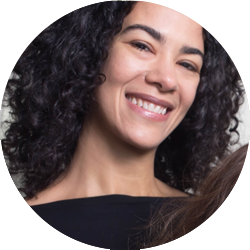“Good job, mama,” my 3-year-old said today. “I’m so proud of you!”
I’m going to pretend she was thanking me for being a good mom instead of for making her some frozen yogurt. (Or maybe the two go hand in hand for her.)
We don’t often hear “thank you” for the job we do as mothers. (Sometimes when my husband informs me that he took out the recycling, in a tone that requests some thanks, I think about the things I did that day as a mom that I wouldn’t mind some thanks for.) Today, on Mother’s Day, hopefully we both gave and received some gratitude.
On those other days, why not give ourselves a pat on the back?
As you put baby to bed, think of one thing you did that day about which you could imagine your baby saying, “Good job, mama! I’m so proud of you.”
The thought makes me chuckle. But why not? There’s plenty of research showing the powerful effect of gratitude on our happiness.
On a deeper level, this is a good time to figure out how we can get the support to restore those depleted parts of ourselves. Australian doctor Oscar Serrallach, who focuses on postnatal recovery, talks about how the neurological changes of becoming mothers require more support than we often ask for or receive.
Serrallach writes:
It’s as though [a mother] gets a “software upgrade,” with some parts of the brain being reinforced and other parts of the brain being lessened. The average brain shrinkage during pregnancy is about 5%, but it is not so much the brain getting smaller, but rather being modified to acquire the skills to become a mother.
This is not discussed or respected enough in our society, and I feel mothers need much support and acknowledgement for this new phase of life.
Part of this upgrade is the acquisition of the “baby radar,” where mothers become intuitively aware of their child’s needs, if they are cold or hungry, or if they cry at night. This hyper vigilance is obviously vital for the survival of the child but if living in an unsupportive society, it can lead to sleep problems, self doubt, insecurity, and feelings of unworthiness.
What happens in the brain, neuroscientists think, is that specific hormonal changes right after baby’s birth “make mothers’ brains susceptible to reshaping in response to the baby.” Our gray matter volume increases in areas of the brain that “support maternal motivation (hypothalamus), reward and emotion processing (substantia nigra and amygdala), sensory integration (parietal lobe), and reasoning and judgment (prefrontal cortex).”
“The motivation to take care of a baby, and the hallmark traits of motherhood, might be less of an instinctive response and more of a result of active brain building,” neuroscientists Craig Kinsley and Elizabeth Meyer note in the journal Behavioral Neuroscience.
These are positive changes that give us mothers many strengths, as Katherine Ellison writes in The Mommy Brain. But, as Serrallach points out, they can also deplete us. Here’s the first part of his advice for repleting our brains and restoring ourselves (read the full Q&A here):
1. Go see a good functional health practitioner and get a comprehensive assessment of micronutrients, -vitamins, and minerals: We often find iron, Vitamin B12, zinc, Vitamin C, Vitamin D, Magnesium, and copper are deficient, insufficient, or out of balance.
2. I universally will start mothers on DHA (an omega 3 fatty acid), which is vital in repairing the nervous system and brain. This can be found in a number of supplements and is typically sourced from fish or algae.
3. A nutritional assessment to identify food sensitivities and food intolerances as these are often created or worsened in the pregnancy.
4. Nutritional advice often will begin by getting mothers off the “cardboard-hydrates,” i.e. hollow carbohydrates and focus on nutrient dense foods.
5. Get support, get support, get support. You can’t have too much support and a babysitter is a lot cheaper than a divorce.
6. Physical therapies that help engage the relaxation response can be very useful in this first part of the repletion program. I particularly recommend restorative yoga and acupuncture.
After that, he wants mothers to focus on getting better sleep, exercise, and nutrition, finding direction and purpose, and restoring relationships.
Hopefully you were able to take one step in this direction today. How about tomorrow?
Written by
Tracy Cutchlow
Tracy is the author of the international bestseller Zero to Five: 70 Essential Parenting Tips Based on Science, a public speaker, and a creator of places to speak and be heard. Sign up for her newsletter here.


VPSRight
DURA Automotive